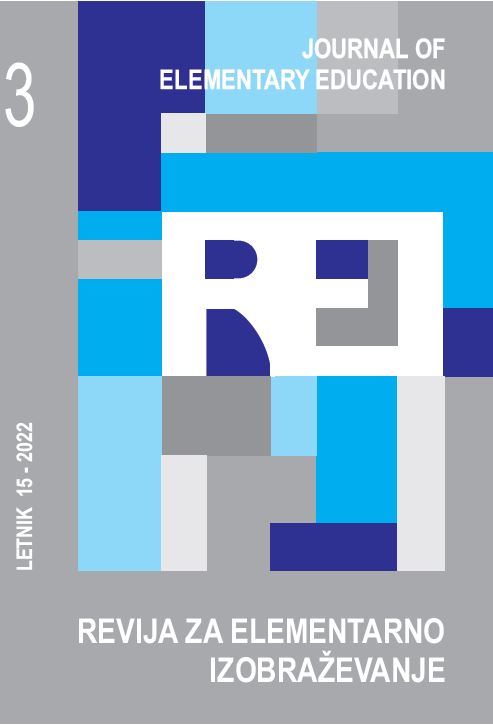Kahoot! Games Enhance Vocabulary Learning?
DOI:
https://doi.org/10.18690/rei.15.3.393-408.2022Keywords:
technology & Vocabulary, Male vs. Female, smartphone, EFL contextAbstract
Many educators are considering using online games for learning vocabulary. Among the existing online games is Kahoot. This study aimed to determine if male and female students learn vocabulary the same way using Kahoot! Games. The study examined whether there was any significant difference among the female and male groups in their vocabulary enhancement. This quantitative research study used a pre-test and a post-test administered to sixty-eight seventh-grade students. Findings revealed a significant difference in vocabulary enhancement between female and male students, thus supporting the use of Kahoot! games as an effective method for teaching vocabulary.
Downloads
References
Aghlara, L., and Tamjid, N. H. (2011). The effect of digital games on Iranian children's vocabulary retention in foreign language acquisition. Procedia- Social and Behavioral Sciences, 29, 552–560, https://doi.org/10.1016/j.sbspro.2011.11.275
Ahmad, S. K., Armarego, J., and Sudweeks, F. (2017). The impact of utilizing mobile-assisted language learning (MALL) on vocabulary acquisition among migrant women English learners. Interdisciplinary Journal of E-Skills and Lifelong Learning, 14, 37–57. DOI:10.28945/3703 Retrieved from https://www.informingscience.org/Publica–tions/3703
Berliani, N. A., and Katemba, C. V. (2021). The Art of Enhancing Vocabulary Through Technology. Journal of English Language Teaching and Applied Linguistics (SMART), 7(1). https://doi.org/10.26638/js.1340.203X
Baszuk, P. A., and Heath, M. L. (2020). Using Kahoot! to increase exam scores and engagement, Journal of Education for Business, 95:8, 548-552, DOI: 10.1080/08832323.2019.1707752
Ching-Huei Chen, and Hui-Chin, Yeh. (2019). Effects of integrating a questioning strategy with game-based learning on students’ language learning performances in flipped classrooms, Technology, Pedagogy and Education, 28(3), 347–361, DOI: 10.1080/1475939X.2019.1618901
Clark, C. (2004). The principles of game-based learning. Paper presented at the NETC/LSC Conference, Crystal City, VA.
Erkaya, O. R., and Drower, I. S. (2012). Perceptions of an EI Learner on Vocabulary Development. International Journal of Special Education, 27, 81–92
Göksün, D. O., and Gürsoy, G. (2019). Comparing success and engagement in gamified Learning experiences via Kahoot and Quizizz. Computers & Education, 135, 15–29, https://doi.org/–10.1016/j.compedu.2019.02.015Hammond, C. (2013). An Analysis of Dilemmas Impeding Internationalization of Japanese Higher Education. Kensey Gakuin University Social Science Review, 17, 7–22.
Holbrey, C. E. (2020). Kahoot! Using a game-based approach to blended learning supports effective learning environments and student engagement in traditional lecture theatres. Technology, Pedagogy, and Education, 29(2), 191202. https://doi.org/10.1080/1475939X.2020.1737568
Fernández-Vega, I., J. Santos-Juanes Jiménez, and L. M. Quirós (2020). Use of Kahoot app to quantify the attention level of the student in the subject of Anatomical Pathology in Medicine and the assessment of the experience Educacion Medica, xx, 1–5 https://doi.org/10.1016/j.edum–ed.2020.01.004
Katemba, C. V. (2019). Students’ Vocabulary Enhancement at Grade 10: A Comparative Study Using CALL & MALL in Indonesia. CALL-EJ, 20(1), 87–114.
Katemba, C. V., and Sinuhaji, G. V. (2021). Can ESA Method Through Quizizz Games Enhance Vocabulary Knowledge? International Journal of Game-Based Learning, 11(3), 19–37. http://doi.org/10.4018/IJGBL.2021070102
Katemba, C. V. (2021). Enhancing Vocabulary Performance Through Mobile Assisted Language Learning at a Rural School in Indonesia. Acuity: Journal of English Language Pedagogy, Literature, and Culture, 6(1), 1–11. https://doi.org/10.35974/acuity.v6i1.2457
Katemba, C. V. (2022). Vocabulary Enhancement through Multimedia Learning Among Grade 7th EFL Students. MEXTESOL Journal, 46(1).
Lai, C. and Zheng, D. (2017). Self-directed use of mobile devices for language learning beyond the classroom. ReCALL, 30(3), 299–318. https://doi.org/10.1017/S0958344017000258
Lee, C. C., Hao, Y., Lee, K. S., Sim, S. C., and Huang, C. C. (2019). Investigation of the effects of an online instant response system on students in a middle school in a rural area. Computers in Human Behavior, 95, 217–223.
Licorish, S. A., Owen, H. E., Daniel, B., and George, J. L. (2018). Students’ perception of Kahoot!’s influence on teaching and learning. Research and Practice in Technology Enhanced Learning,13(9) DOI: https://doi.org/10.1186/s41039-018-0078-8.
Mahdi, S. H. (2018). Effectiveness of Mobile Devices on Vocabulary Learning: A Meta-Analysis. Journal of Educational Computing Research. 56(1), 134-154. DOI: 10.1177/0735633117698826
Mansur, M. and D. Fadhilawati (2019). Applying Kahoot to Improve the Senior High School Students’ Vocabulary Achievement. VELES Voice of English Language Education Society, 3(2). DOI: https://doi.org/10.29408/veles.v3i2.1591
McKee, K. C. (2014). The vocab games: Kahoot! Retrieved from: http://kennycmckee.com/the-vocab-games-kahoot/
Medina, E. L. and Hurtado, C. P. R. (2017). Kahoot! A Digital Tool for Learning Vocabulary in a language classroom, Revista Publicando, 4(12). 441–449. ISSN 1390-93 441
Nation, I. S. P. (2013). Learning Vocabulary in Another Language. 2nd edition. Cambridge: Cambridge University Press.
Niitemaa, L. M. and P. Pietilä (2018). Vocabulary Skills and Online Dictionaries: A Study on EFL Learners’ Receptive Vocabulary Knowledge and Success in Searching Electronic Sources for Information. Journal of Language Teaching and Research, 9(3), 453–462. DOI: 10.17507/ jltr.0903.02.
Plump, C. M., and LaRosa, J. (2017). Using Kahoot! in the Classroom to Create Engagement and Active Learning: A Game-Based Technology Solution for eLearning Novices. Management Teaching Review, 2(2), 151–158. https://doi.org/10.1177/2379298116689783
Robinson, A. (2001). Word Smart: Building an Educated Vocabulary. New York: Random House.
Sugar, S, and Sugar, K. K. (2002). Primary Games: Experiential Learning Activities for Teaching Children K-8, Teoria Praxis, 4, 46–47.
Taebenu, S. F., and Katemba, C. V. (2021). Vocabulary Enhancement through Memrise and Google Classroom. Language Literacy: Journal of Linguistics, Literature and Language Teaching, 5(1), pp: 228–241. https://doi.org/10.30743/ll.v5i1.3813
Taj, H. S., Ali, F., and Ahmad, W. (2017). Effect of Technology Enhanced Language Learning on Vocabulary Acquisition of EFL Learners. International Journal of Applied Linguistics & English Literature, 6(3), 262. doi: 10.7575/aiac.ijalel. v.6n.3p. Retrieved from https://www.resear–chgate.net/publication/314142803_Effect_of_Technology_Enhanced_Language_Learning_on_Vocabulary_Acquisiti on_of_EFL_Learners
Thornbury, S. (2002). How to Teach Vocabulary. UK: Longman
Wang, A. I. (2015). The wear-out effect of a game-based student response system. Computers & Education, 82, 217–227
Wang, A. I., and Tahir, R. (2020). The effect of using Kahoot! for learning–A literature review. Computers & Education, 149, 103818. https://doi.org/10.1016/j.compedu.200.1038–18
Zarzycka-Piskorz, E. (2016). Kahoot it or not? Can games be motivating in learning grammar? Teaching English with Technology, 16(3), 17–36. https://www.ceeol.com/search/a–rticle-detail?id=42–0768
Downloads
Published
Issue
Section
License
Copyright (c) 2022 Caroline V. Katemba, Joshua H. L. Tobing, Talitha A. Putri

This work is licensed under a Creative Commons Attribution 4.0 International License.
